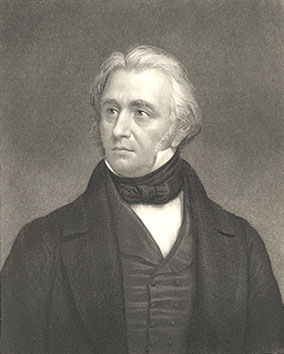Macaulay

[Wilberforce...]would frequently introduce a private member’s Bill abolishing slavery. Year after year his Bills were defeated until, finally, late on Friday July 26, 1833, as he lay on his deathbed, his friend, Thomas Babington Macaulay, the famous historian and member of the Society for the Mitigation and Gradual Abolition of Slavery throughout the British Dominions, brought him word that the Slavery Abolition Bill 1833 abolishing slavery throughout the British Empire had been read a third time (which means that it had been passed) by the House of Commons. Passage of the Bill through the House of Lords was assured. Wilberforce exclaimed:"Thank God that I have lived to witness the day in which England is willing to give £20 million for the abolishment of slavery."
Gary Galles' Remembering Thomas Babington Macaulay on Mises.org' blog is a welcome comment on Macaulay (10/25/1800-12/28/1859). There were several years that I spent with Macauley's works, particularly Miscellaneous Writings and Historical and Critical Essays, by my bedside when I was convinced that few libertarians were interested in history. This sage classical liberal historian (and great-uncle of another, G.M. Trevelyan), author of the often reprinted History of England, antislavery activist (and one of the founders of the Anti-Slavery Society), writer on many themes (probably best known for his Edinburgh Review essays), including antislavery, utilitarianism (which he embraced following in the lines of Joseph Priestly and Jeremy Bentham), ancient Rome, Milton, Macchiaveli, copyright, and the contestedlegacy of colonialism.
At Trinity College as a student, he fought to bring an end to the rule that forbade a discussion of public affairs at the Student Union later than those of the last century. He became elected to Parliament (all of us has some skeletons in our closet, after all) for the first seat for Leeds, traditionally, a hotbed of radical classical liberals (Samuel Smiles, Edward Baines (Sr. and Jr.), Wordsworth Donisthorpe, and many others) he was known for both his oratory and his writings, as mentioned before, primariy the History of England.
As a life-long student of history and admirer of Macauley, I would recommend his writings. Some of his books are long and, to be honest, I prefer his shorter prose (not his poetry), which I find more precise. Any historian of classical liberalism must take time to consider his legacy.
Just a thought.Just Ken
CLASSical Liberalism